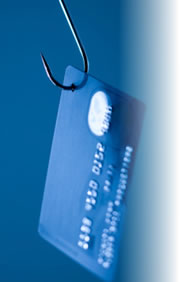Credit card issuers making offers like…drunk butlers?

In 1920s Britain, senior Conservative Party grandees vied for invitations from Mrs. Ronnie Grenville. She threw glittering dinner parties with the finest food and wine, and the most scintillating conversation. One Sunday evening was particularly special. Austen Chamberlain, cabinet member and the top Tory thinker of his day, was guest of honor, and the others round the table salivated as much in anticipation of his incisive analyses as of the foie gras entier.
Everyone sat silent, spellbound and respectful as Chamberlain launched into a monologue on the great issues his nation then faced. Only Mrs. Grenville was distracted. Her butler, an old family retainer who had sadly slid into alcoholism, was clearly inebriated, stumbling, slurring and spilling wine. She scribbled a note to him: “You are drunk–leave the room at once.” He responded to her summoning wave, took the note and read it. He then drew himself up to his full height, and with the slow, deliberate walk of a practiced boozer, proceeded to the sideboard. There, he selected an exquisite sterling silver salver, placed the note upon it, and delivered it, mid-discourse, to Chamberlain.
Credit card companies and drunk butlers
There are times when it feels as if banks target their credit card offers (and there were 2.82 billion of them last year, according to global market research company Synovate) with all the clearheadedness of Mrs. Grenville’s inebriated butler delivering a message. There are plenty of examples of people receiving such solicitations just months after being discharged as bankrupt. And, in June 2011, Christian Dorsey of the Economic Policy Institute told Fox News:
… credit card companies will give a credit card to anybody with a pulse regardless of your [sic] ability to pay. There are documented issues of minors receiving credit card offers. It’s an unbelievable situation where people who have not worked for the ability to have the privilege of owning and using a credit card are able to get one without any strings attached.
Credit card offers that are inappropriate
Dorsey may have been overstating his case for emphasis, but it’s certainly true that there often seems to be little connection between the offers card issuers mail and the creditworthiness or needs of the people to whom they’re addressed. The month before that interview, The Pew Charitable Trusts’ Safe Credit Card Project estimated that “American households receive more than 10 million offers every month for business credit cards,” pretty much regardless of whether the recipients actually own their own businesses.
Meanwhile, The Consumerist blog reported a case of someone referred to only as Brad. He claimed to have received in the mail more than 20 offers within three months, all from the same issuer, Capital One. The outcome? Far from making a credit card application, he was quoted as saying: “What’s really been accomplished is I now have a strong opinion about a brand that I never previously cared about either way.”
Credit card deals with appeal
Brad may not have liked what was inside Capital One’s 20-odd envelopes, but he might have been hasty in complaining about receiving such offers. Because banks are falling over themselves to attract new customers right now, and many are trying to buy market share with some pretty amazing credit card deals.
Take, for example, the Chase Freedom® card. This card promises to give you $100 cash back for signing up, and the only significant string attached is that you have to spend $500 on the card during the first three months that you have it. Who could object to a $100 gift, even if it does mean completing a credit card application and making $500 in purchases in the first three months from account opening?
Credit card offers can be slowed
Well, some do object. And if you’re one of them, there are ways to slow the flow of mailed credit card offers. One way is to contact the Direct Marketing Association at www.DMAchoice.org. This allows you to choose to not receive many sorts of mailings. Another organization, OptOutPrescreen.com, is run by the main credit bureaus, and allows you to opt out only from offers for credit cards.
It’s possible that neither of these would totally dry up the flow of card junk mail, but they might reduce the torrent to a trickle. One reason for that is that it’s difficult to opt out of receiving mailings from credit card companies if you’re already one of their customers. You may find that you have to call them to be taken off their direct marketing mailing lists.
Opting out of receiving mailed offers for credit cards is certainly green and can save frustration, but it does mean that you could miss out on some excellent deals. The obvious solution is to regularly visit comparison shopping websites such as IndexCreditCards.com and CardRatings.com That way you can be sure that you’re getting the most from your plastic while saving the planet and avoiding unsolicited visits from the drunk butler.
Disclaimer:The information in this article is believed to be accurate as of the date it was written. Please keep in mind that credit card offers change frequently. Therefore, we cannot guarantee the accuracy of the information in this article. Reasonable efforts are made to maintain accurate information. See the online credit card application for full terms and conditions on offers and rewards. Please verify all terms and conditions of any credit card prior to applying.
This content is not provided by any company mentioned in this article. Any opinions, analyses, reviews or recommendations expressed here are those of the author’s alone, and have not been reviewed, approved or otherwise endorsed by any such company. CardRatings.com does not review every company or every offer available on the market.
Published (Modified )